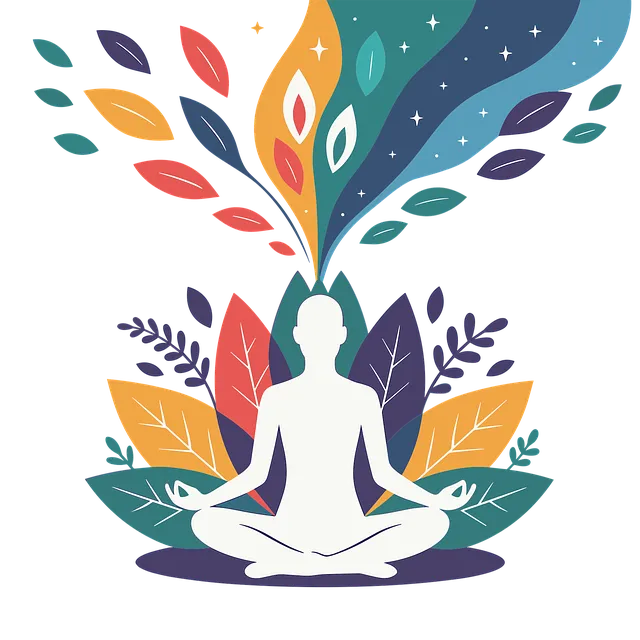Mental wellness journaling, as highlighted in Longmont Kaiser Permanente behavioral health services reviews, is a powerful tool for self-reflection and personal growth. By writing down thoughts, emotions, experiences, and observations, individuals reduce stress, gain insights into their mental states, track progress, develop healthier coping mechanisms, manage anxiety and depression, and enhance overall well-being. A personalized journal offers a calming space for expression, cultivating gratitude and fostering self-awareness. Regular journaling helps identify patterns, recognize triggers, celebrate achievements, set realistic goals, and build resilience, making it an effective method for tracking mental wellness progress as seen in Longmont Kaiser Permanente behavioral health services reviews.
Discover the transformative power of mental wellness journaling with guidance from Longmont Kaiser Permanente Behavioral Health Services. This holistic practice combines self-reflection and expressive writing to improve mental health, enhance coping mechanisms, and foster personal growth. Understanding the benefits and setting clear goals is key. Learn how to create a personalized journal using effective writing techniques, and explore strategies for tracking progress, allowing you to reflect and deepen your journey towards better mental wellness, as reviewed by Kaiser Permanente Longmont behavioral health services.
- Understanding Mental Wellness Journaling: Benefits and Goals
- Creating Your Journal: Tools and Techniques for Effective Writing
- Tracking Progress: Strategies for Reflecting and Enhancing Mental Health
Understanding Mental Wellness Journaling: Benefits and Goals

Mental wellness journaling is a powerful tool for self-reflection and personal growth. It involves writing down thoughts, emotions, experiences, and observations in a structured manner to promote mental well-being. This practice has gained popularity as part of holistic healthcare approaches, such as those offered by Longmont Kaiser Permanente behavioral health services reviews. By committing time each day or week to journaling, individuals can gain valuable insights into their mental states, track progress over time, and develop healthier coping mechanisms.
The benefits of mental wellness journaling are diverse. It aids in stress reduction, offering a safe space for individuals to process challenging situations and emotions. Moreover, it facilitates self-awareness by encouraging introspectiveness, which can help in managing symptoms of anxiety and depression. Through regular practice, journaling can also serve as a catalyst for Mental Illness Stigma Reduction Efforts, fostering self-acceptance and empathy towards others’ mental health journeys. This practice has the potential to enhance overall well-being and provide an outlet for creative expression, ultimately contributing to improved quality of life and better management of mental health concerns like Anxiety Relief.
Creating Your Journal: Tools and Techniques for Effective Writing

Creating your journal can be a powerful tool for mental wellness. Start by choosing a space that feels calming and comfortable—a quiet corner of your home or even a dedicated area in nature. Select materials that inspire you, such as a beautiful notebook or a collection of pens with vibrant colors. This personal touch will encourage regular writing sessions. Some people prefer a structured approach, using prompts or guided exercises; others find free-flowing writing more beneficial. You can include various techniques like mood tracking, gratitude lists, or even artistic expressions like doodling and sketching to reflect your emotions.
Longmont Kaiser Permanente behavioral health services reviews often highlight the effectiveness of journaling as a self-care routine development for better mental health. By consistently documenting your thoughts and feelings, you can identify patterns, gain insights into your emotional landscape, and foster a deeper understanding of yourself. Moreover, this practice contributes to mental illness stigma reduction efforts by promoting self-awareness and encouraging a positive relationship with one’s mental well-being. Additionally, journaling can be a confidence-boosting activity as you learn to articulate and accept your emotions, leading to improved self-acceptance and resilience.
Tracking Progress: Strategies for Reflecting and Enhancing Mental Health

Journaling is a powerful tool for tracking progress in mental wellness. Regular reflection through writing can help individuals identify patterns, recognize triggers, and celebrate achievements. It’s similar to how Longmont Kaiser Permanente behavioral health services reviews assess client improvement over time—a process that involves both observation and self-reporting. By jotting down thoughts, emotions, and experiences daily, one gains valuable insights into their mental health journey. This practice enables individuals to set realistic goals, implement effective coping strategies, and build resilience, all of which are crucial components in the Community Outreach Program Implementation’s success.
Moreover, journaling can be enhanced through various strategies inspired by Public Awareness Campaigns Development. Individuals might create themes for different days or weeks, focusing on specific aspects like stress management, self-care, or positive affirmations. This thematic approach not only adds structure to journaling but also facilitates a deeper exploration of mental health topics. Through consistent reflection and creative expression, one can develop a stronger connection with their emotional landscape, fostering personal growth and improved overall well-being.
Mental wellness journaling is a powerful tool offered by Longmont Kaiser Permanente behavioral health services, as reviewed by many satisfied users. By integrating this practice into your routine, you can gain profound insights, enhance self-awareness, and improve overall mental health. Through exploring thoughts and emotions on the page, individuals can better understand their feelings, set personal goals, and track progress over time. This simple yet effective exercise encourages reflection, fosters growth, and provides a safe space for expression—essential components of maintaining balanced mental wellness.






